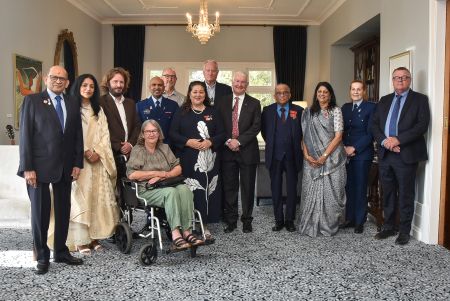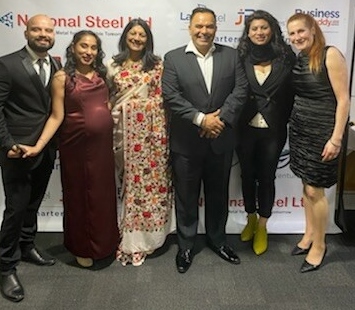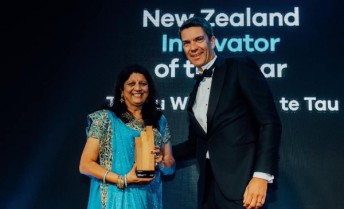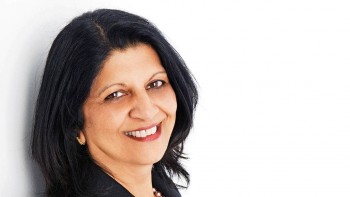King’s Honours recipients Gandhi Nivas founder Dame Ranjna Patel and Total Healthcare PHO CEO Mark Vella have been recognised for their mahi preventing family violence.
Dame Ranjna became a Dame Companion of the New Zealand Order for her service to family violence prevention, ethnic communities and health. While Mark became an Officer of the New Zealand Order of Merit and his citation mentions his work to secure funding for Gandhi Nivas.
Just over 10 years ago Dame Ranjna founded Gandhi Nivas – the first New Zealand family-harm reduction initiative to provide free 24/7 wrap-around services that give men the opportunity to engage in early rehabilitation and support to women and their families to help keep them safe.
Never one to sit on the sidelines, she truly believes the more you give back to the community, the more you will be rewarded, so long hours volunteering are part of her DNA – along with not giving up!
“If you listen to people at the grassroots and work out a solution that works for them, you are more likely to get buy-in for a process that's completely different,” Dame Ranjna says.
“You also need to innovate and tackle issues at their root causes to make true change. For example, to address family harm I believe you must work with those who perpetrate it to help support long-term behavioural change and keep families and partners safe.”
Overseas police regularly visit the service due to Gandhi Nivas’s international reputation for successfully reducing family harm by working in partnership with New Zealand Police.
The Gandhi Nivas service Dame Ranjna founded is also an inspiration for prevention services around the country and internationally.
Dedication to holistic healthcare
Mark has been recognised for his mahi over nearly 30 years breaking down barriers to ensure people most in need of healthcare get the support they need.
The seed funding and mentoring Total Healthcare PHO provides for programmes, like Gandhi Nivas, through the government’s FFP, was critical in securing them more funding. In the case of Gandhi Nivas, the PHO’s support resulted in funding from MSD and ACC.
“I hope this honour, that I am so humbled to receive, will showcase the value of PHOs and how they can help to tackle the country’s toughest issues related to physical and mental wellness and, equally importantly, the social determinants of health. PHOs can only achieve this through the primary healthcare funding we are allocated from the Flexible Funding Pool,” Mark says.




 A $25,000 donation to Gandhi Nivas from the Light for Life fundraiser evening will be gratefully used to help our work supporting families experiencing family harm.
A $25,000 donation to Gandhi Nivas from the Light for Life fundraiser evening will be gratefully used to help our work supporting families experiencing family harm.

 When Ranjna Patel was asked to offer guidance around family violence in in the South Asian community in 2013, she identified a crucial missing step in family violence intervention – engaging offenders in their own rehabilitation. In 2014, she established the first Gandhi Nivas home for perpetrators in Otahuhu, providing innovative early intervention and prevention services for Kiwi men. A study undertaken by Massey University looked at men five years before entering Gandhi Nivas and after, and found 60% of men did not re-offend.
When Ranjna Patel was asked to offer guidance around family violence in in the South Asian community in 2013, she identified a crucial missing step in family violence intervention – engaging offenders in their own rehabilitation. In 2014, she established the first Gandhi Nivas home for perpetrators in Otahuhu, providing innovative early intervention and prevention services for Kiwi men. A study undertaken by Massey University looked at men five years before entering Gandhi Nivas and after, and found 60% of men did not re-offend.



